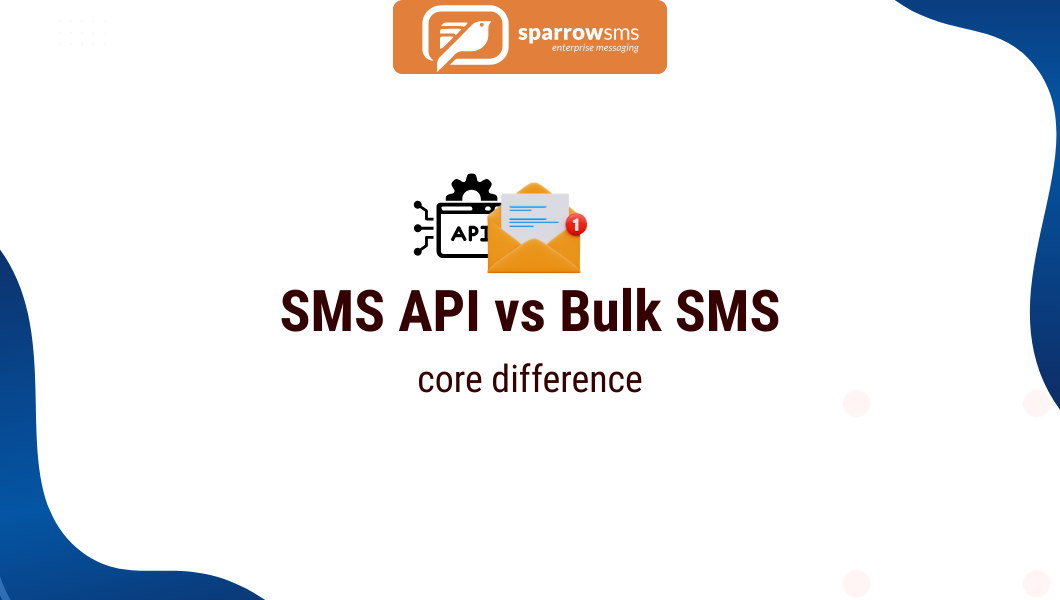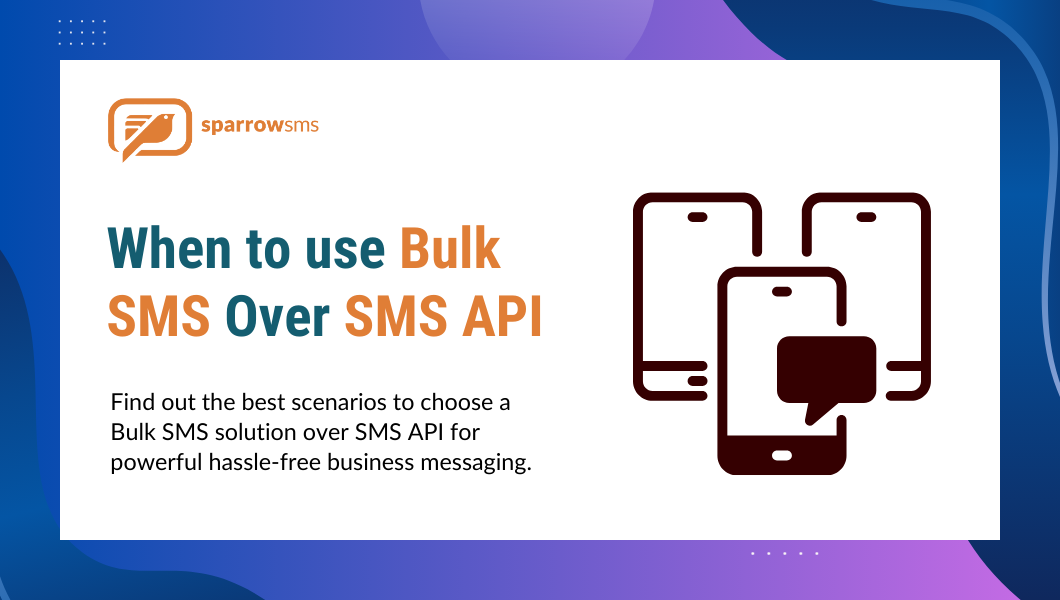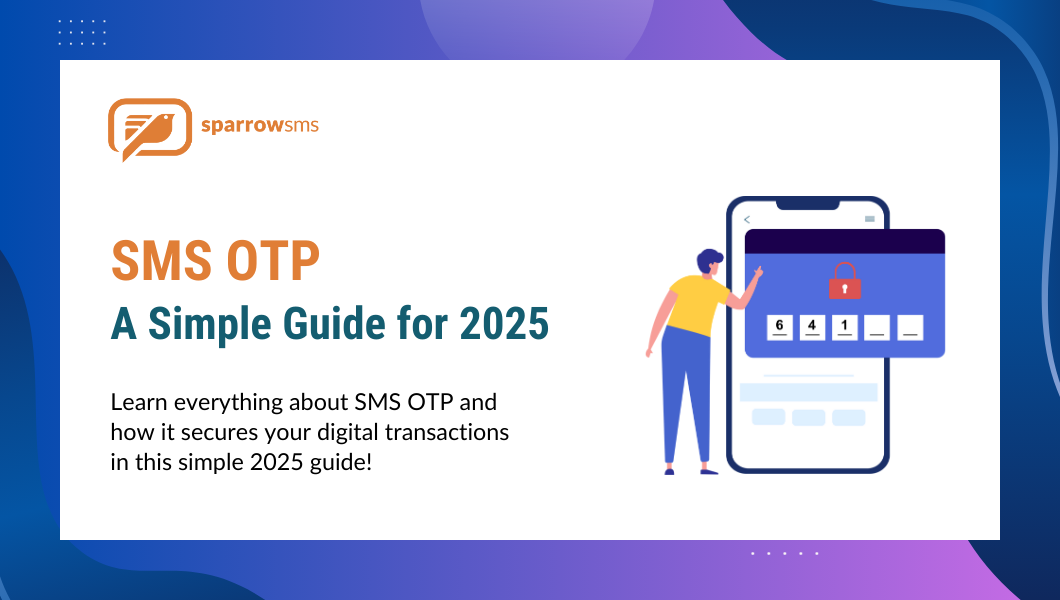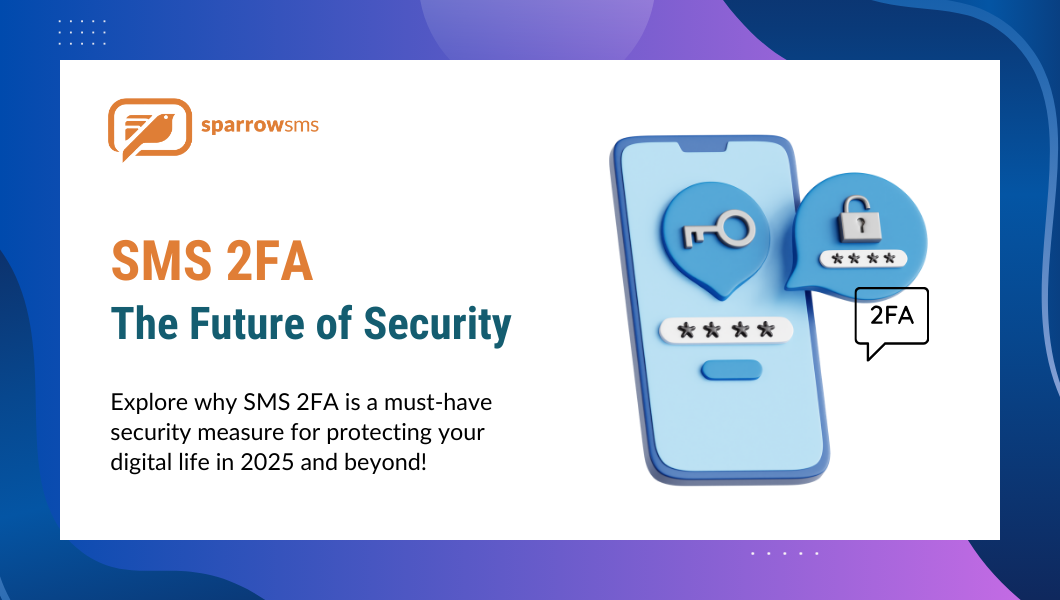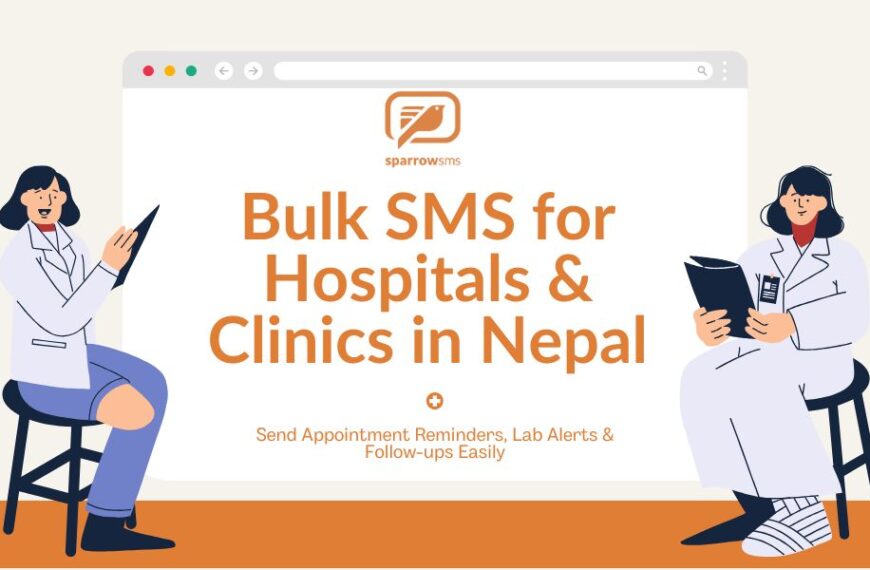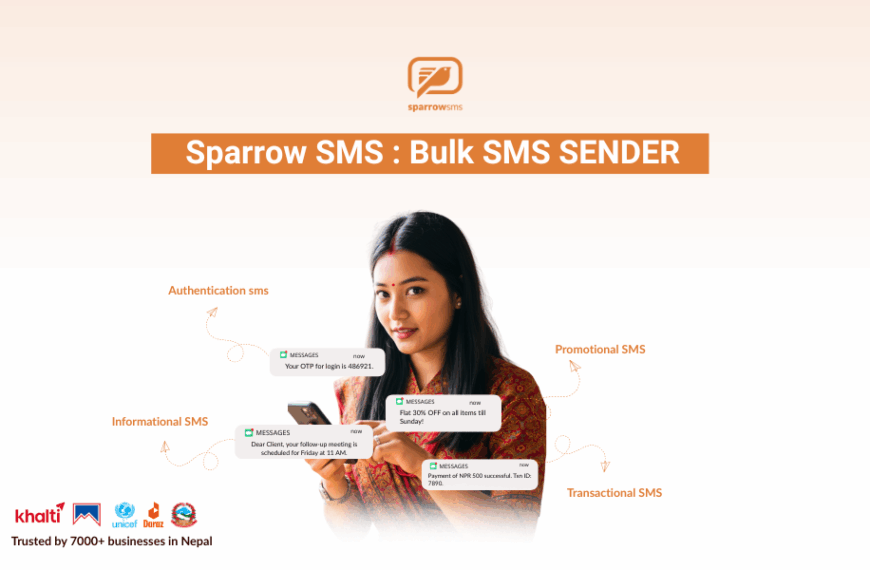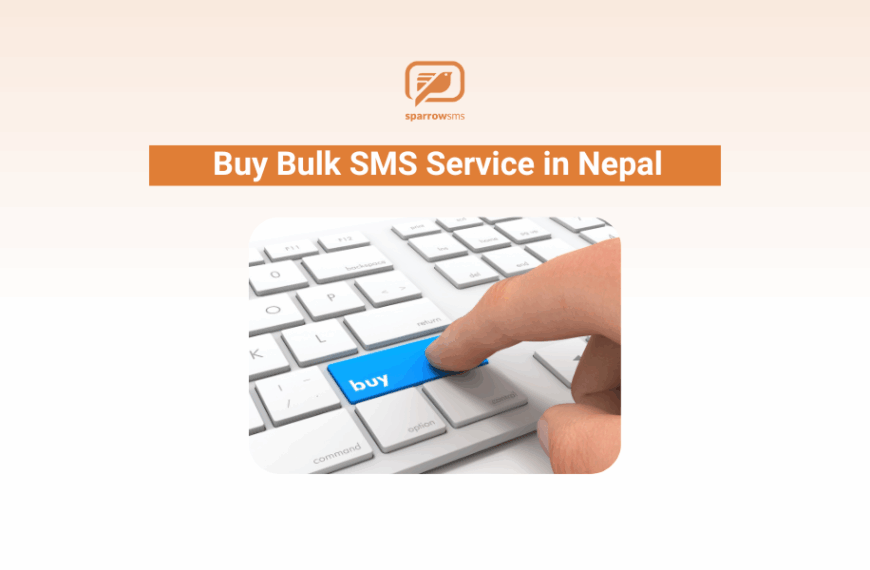When exploring business communication solutions, many companies find themselves comparing different messaging approaches. Two popular options that often create confusion are SMS API and bulk SMS platform solutions. While both enable businesses to reach customers through text messaging, they serve distinctly different purposes and operate through unique methodologies.
Understanding these differences becomes crucial when selecting the right communication strategy for your organization. The choice between an SMS API gateway and a bulk SMS service can significantly impact your operational efficiency, automation capabilities, and overall messaging success.
1. What Is a Bulk SMS Platform?

A bulk SMS platform represents a user-friendly, web-based solution designed for sending large volumes of text messages simultaneously. This bulk SMS service operates through an intuitive interface where users can manually upload contact lists, compose messages, and schedule deliveries to multiple recipients at once.
1.1 Key Features of Bulk SMS Software
Modern bulk SMS software offers several essential capabilities that make mass communication manageable for businesses of all sizes. These platforms typically include contact management systems, message scheduling options, and basic analytics to track delivery performance.
The bulk SMS gateway technology behind these platforms ensures reliable message delivery across different mobile networks. Most bulk SMS features include template libraries, personalization options, and the ability to segment contact lists for targeted campaigns.
1.2 Benefits of Using Bulk SMS Service
Organizations choosing bulk SMS integration gain access to straightforward mass texting service capabilities without requiring technical expertise. The bulk SMS setup process remains simple, often requiring only account registration and contact list preparation.
Bulk SMS customization options allow businesses to tailor messages according to their brand voice and campaign objectives. The platform’s bulk SMS security measures protect sensitive customer data while ensuring compliance with messaging regulations.
2. Understanding SMS API Solutions
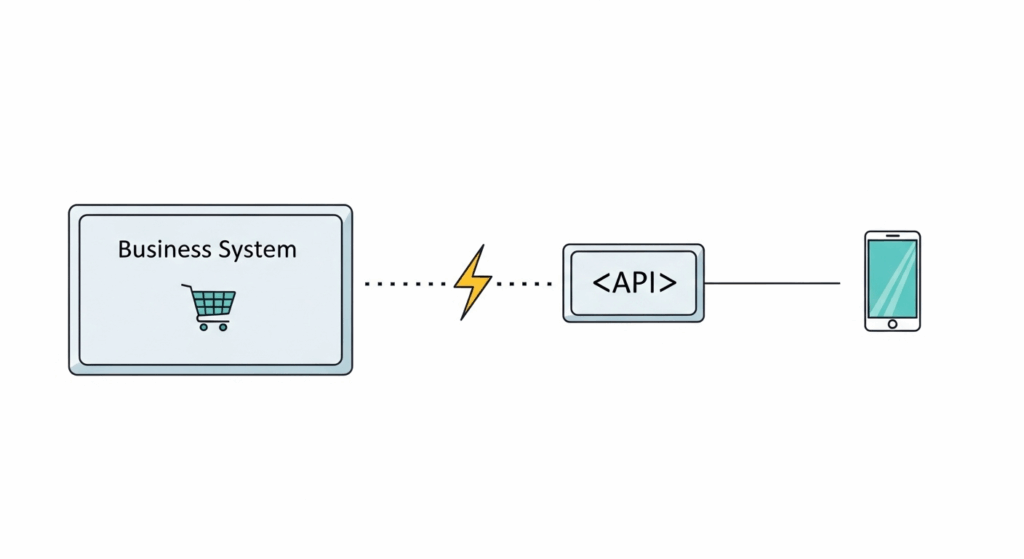
An SMS API represents a programmatic interface that enables applications and systems to send text messages automatically. Unlike manual bulk SMS platforms, an SMS gateway API integrates directly with existing business software to trigger messages based on specific events or user actions.
2.1 SMS API Integration Capabilities
SMS API integration allows businesses to embed messaging functionality directly into their websites, mobile applications, or customer relationship management systems. This SMS API service provides real-time communication capabilities that respond instantly to user behaviors or system events.
The SMS API software architecture supports various programming languages and frameworks, making it accessible to developers across different technical environments. Advanced SMS API features include delivery confirmations, message status tracking, and detailed analytics for performance optimization.
2.2 Advantages of SMS API Implementation
SMS API setup enables businesses to achieve seamless automation in their communication workflows. The SMS API customization options provide flexibility to create highly personalized messaging experiences based on user data and behavioral triggers.
SMS API security protocols ensure encrypted data transmission and secure authentication processes. The SMS API compliance features help businesses adhere to regulatory requirements while maintaining customer trust and data protection standards.
3. Bulk SMS Platform vs SMS API: Core Differences
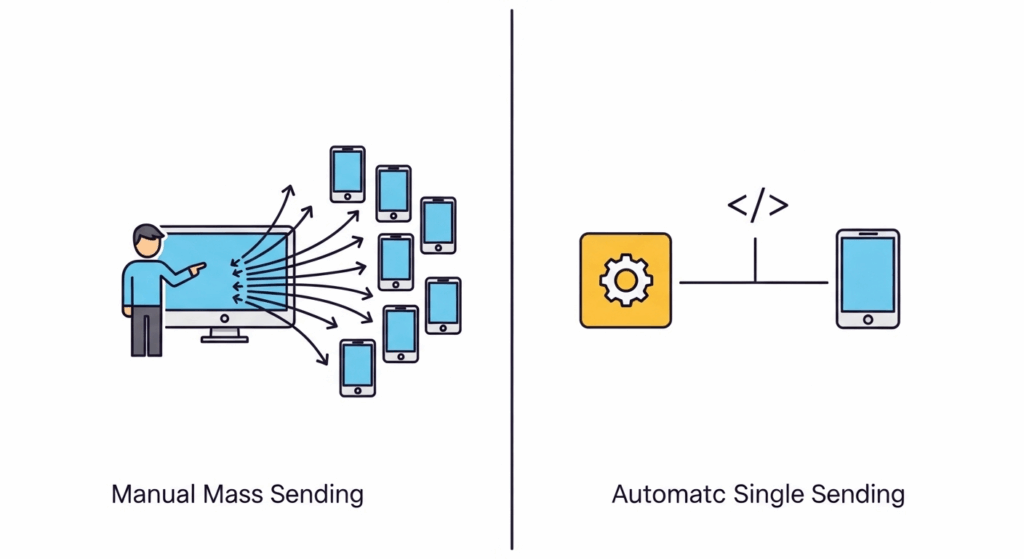
The fundamental distinction between these approaches lies in their operational methodology and integration requirements. Bulk SMS platforms excel in manual campaign management, while SMS API solutions provide automated, system-driven messaging capabilities.
3.1 Delivery and Performance Comparison
Both bulk SMS delivery rates and SMS API delivery rates depend on the underlying gateway infrastructure and network partnerships. However, SMS API solutions often provide more detailed delivery tracking and real-time status updates compared to traditional bulk SMS platforms.
Bulk SMS open rates and SMS API open rates vary based on message timing, content relevance, and recipient engagement patterns. SMS API solutions typically achieve higher engagement due to their contextual, trigger-based nature.
3.2 Analytics and Tracking Capabilities
Bulk SMS tracking features usually include basic delivery reports and campaign performance metrics. In contrast, SMS API tracking provides granular insights into message lifecycle events, including delivery attempts, failures, and recipient interactions.
Bulk SMS analytics offer campaign-level insights suitable for marketing performance evaluation. SMS API analytics deliver real-time operational data that helps optimize automated messaging workflows and system performance.
4. Choosing the Right Solution for Your Business
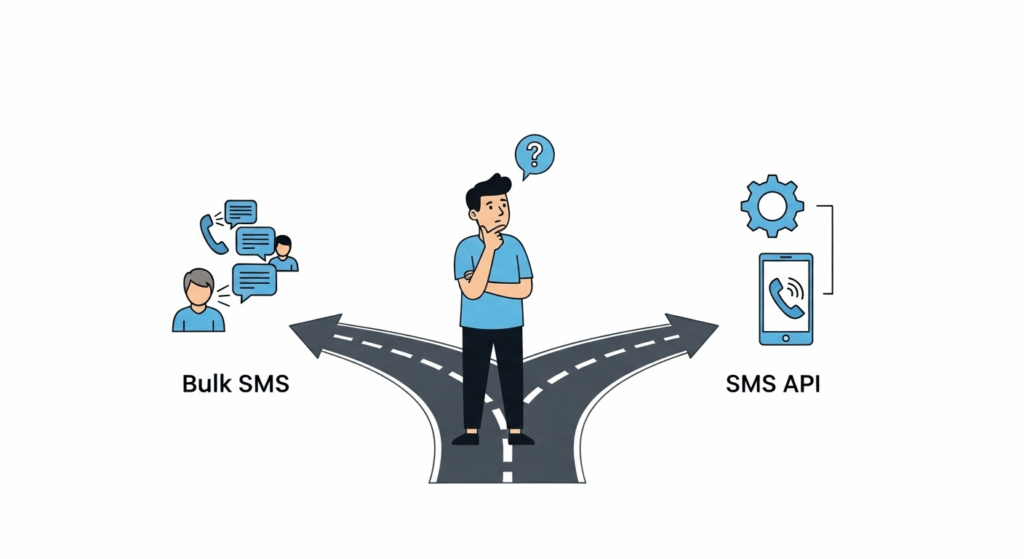
4.1 For Small Business Applications
Small organizations often benefit from bulk SMS for small business applications due to their straightforward setup and minimal technical requirements. These solutions provide cost-effective access to mass messaging capabilities without significant infrastructure investments.
However, growing businesses may find SMS API for small business more valuable when they need to integrate messaging with customer support systems, e-commerce platforms, or appointment booking software.
4.2 Enterprise-Level Considerations
Large organizations typically require bulk SMS for enterprise solutions that can handle massive contact databases and complex campaign management requirements. Enterprise bulk SMS platforms offer advanced segmentation, workflow automation, and team collaboration features.
Simultaneously, SMS API for enterprise applications become essential when organizations need to integrate messaging across multiple systems, departments, and customer touchpoints for comprehensive communication automation.
5. Technical Implementation Factors
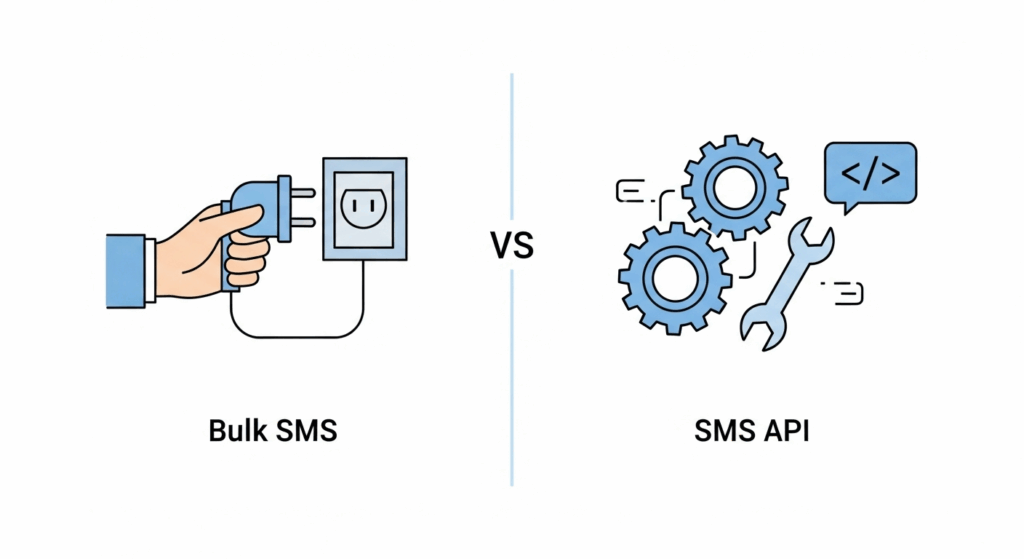
5.1 Learning Curve and Setup Requirements
The bulk SMS learning curve remains minimal, as most platforms offer intuitive interfaces that non-technical users can master quickly. Basic bulk SMS tools require little training beyond understanding contact management and message composition principles.
Conversely, the SMS API learning curve involves programming knowledge and system integration expertise. Organizations need dedicated SMS API tools and development resources to implement and maintain API-based messaging solutions effectively.
5.2 Scalability Considerations
Bulk SMS scalability depends on the platform’s infrastructure capacity and pricing model. Most services can accommodate growing contact lists and increased messaging volumes through tiered pricing structures.
SMS API scalability offers more flexible growth options, as the programmatic nature allows businesses to scale messaging volumes based on actual system usage and user interactions rather than predetermined contact list sizes.
6. Cost Analysis and ROI Considerations
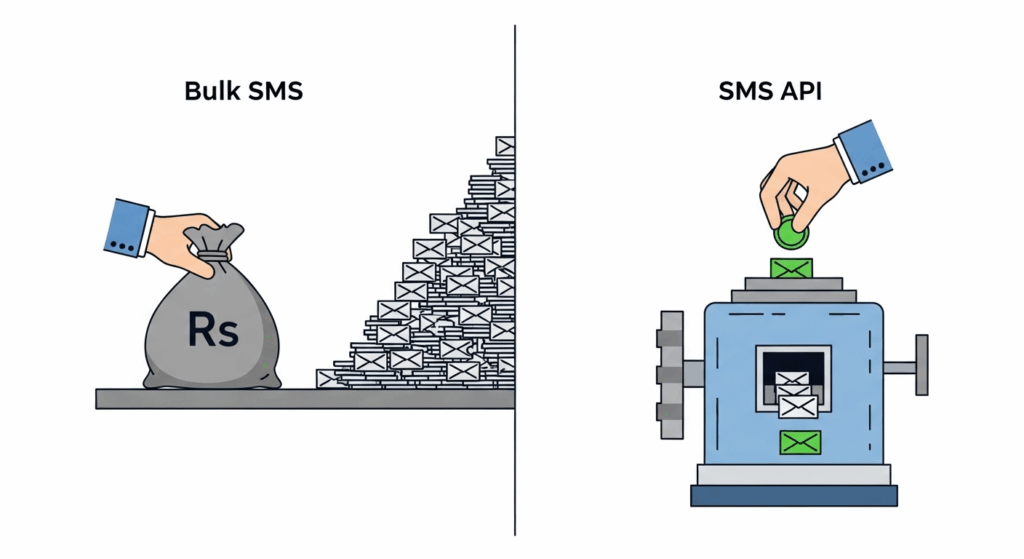
6.1 Pricing Structure Comparison
Bulk SMS pricing typically follows volume-based models where businesses pay per message sent or maintain monthly subscription plans based on messaging quotas. This predictable bulk SMS ROI calculation helps organizations budget their communication expenses effectively.
SMS API pricing often combines base subscription fees with usage-based charges, reflecting the more sophisticated infrastructure and automation capabilities. The SMS API ROI calculations should consider both direct messaging costs and the operational efficiency gains from automation.
6.2 Value Assessment Factors
Bulk SMS deployment costs remain relatively low, focusing primarily on platform subscription fees and content creation resources. The bulk SMS technical support requirements usually involve basic troubleshooting and account management assistance.
SMS API deployment involves development time, integration testing, and ongoing maintenance considerations. However, SMS API technical support often includes more comprehensive documentation, developer resources, and system integration guidance.
7. Making the Final Decision
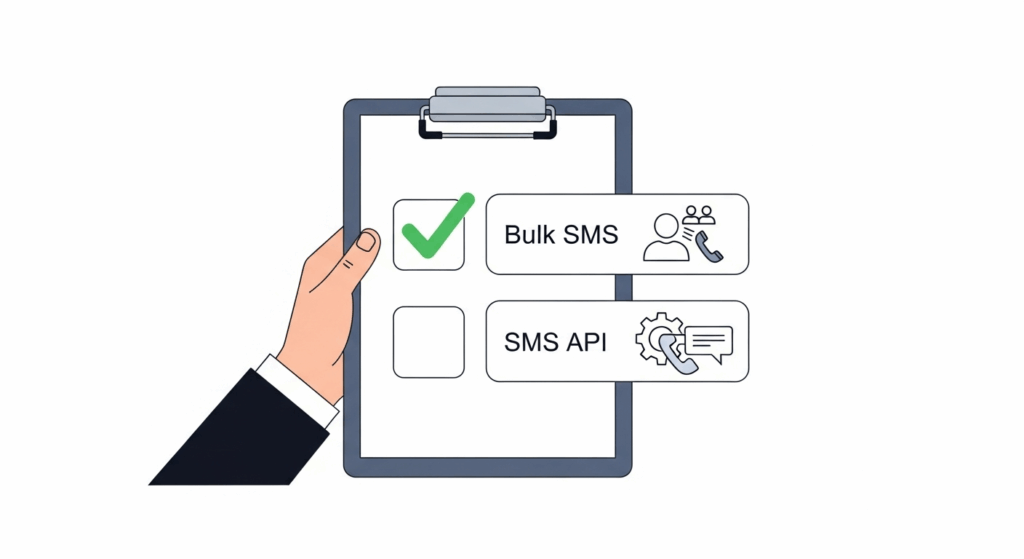
The choice between bulk SMS and SMS API solutions ultimately depends on your organization’s specific communication needs, technical capabilities, and growth objectives. Businesses seeking simple, campaign-based messaging should consider bulk SMS platforms, while those requiring automated, system-integrated communication should evaluate SMS API options.
Both solutions offer valuable benefits when properly implemented and aligned with business requirements. The key lies in accurately assessing your current needs while considering future scalability and integration requirements that may influence your long-term communication strategy success.

